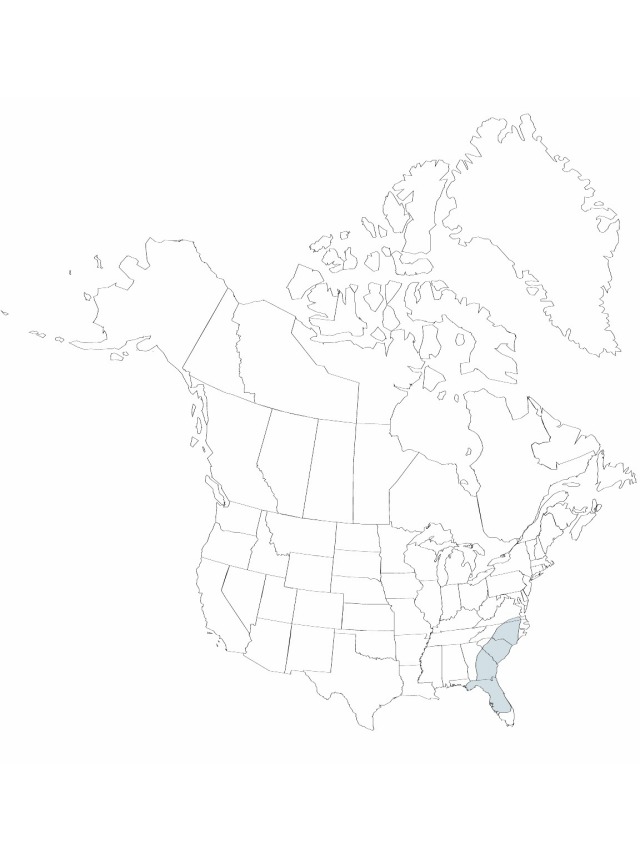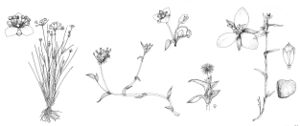Callisia graminea
Journal of the Arnold Arboretum 70:118. 1989.
IllustratedEndemic
Basionym: Cuthbertia graminea Small Fl. S.E. U.S., 237, 1328. 1903
Synonyms: Tradescantia rosea var. graminea (Small) E. S. Anderson & Woodson
Treatment appears in FNA Volume 22.
Herbs, perennial, cespitose, erect to ascending. Roots glabrous to sparsely puberulent. Stems (4–)15–25(–40) cm. Leaves ascending; basal leaf sheaths glabrous to pilose or puberulent; blade linear, 4–17 × 0.1–0.5 mm (distal leaf blades much narrower than sheaths when sheaths opened, flattened). Inflorescences: bracts often elongate, sometimes minute, 2–14 mm, if elongate ± herbaceous, if minute scarious. Flowers pedicellate; pedicels (0.7–)1.2–2 cm; petals pink to rose, 8–10 mm; filaments bearded. Capsules 2–3.5 mm. Seeds 1.5–2 mm. n = 6, 12, 18.
Phenology: Flowering spring–fall.
Habitat: Sandy soil in pine-oak woods (especially longleaf pine and turkey oak) and pine barrens, often on sandhills, occasionally in thickets, old fields and roadsides
Distribution

Fla., Ga., N.C., S.C., Va.
Discussion
I have not been able to confirm the record of this species from Maryland in M. L. Brown and R. G. Brown (1984).
Selected References
Lower Taxa
None.
